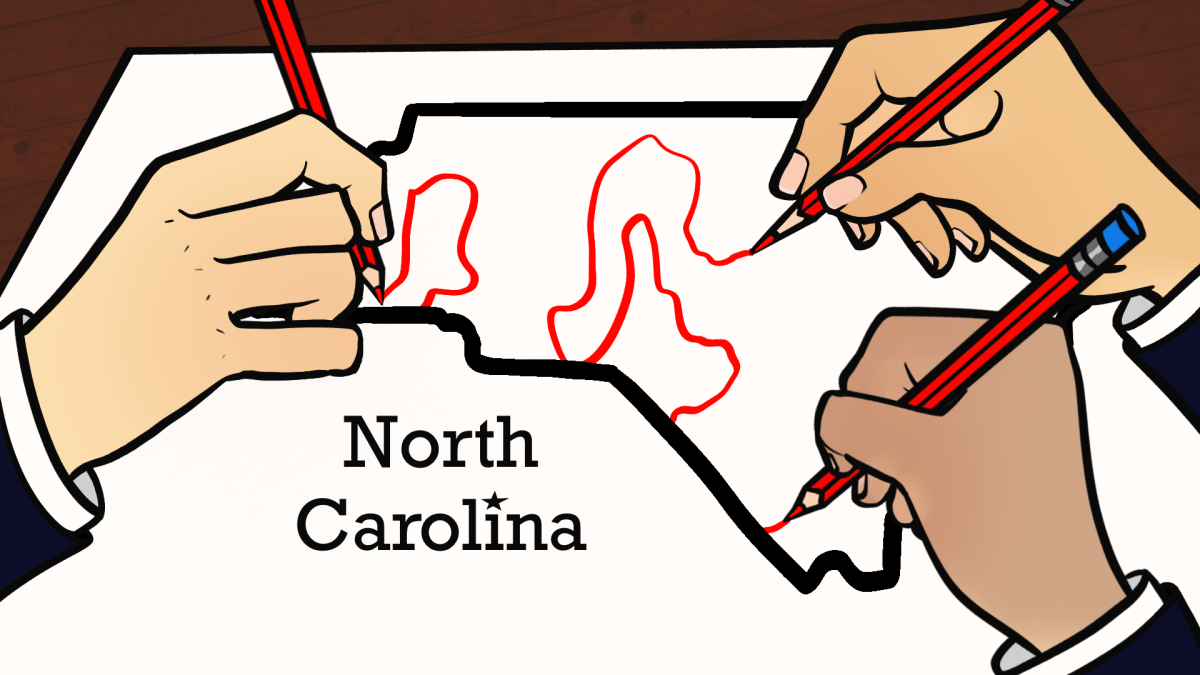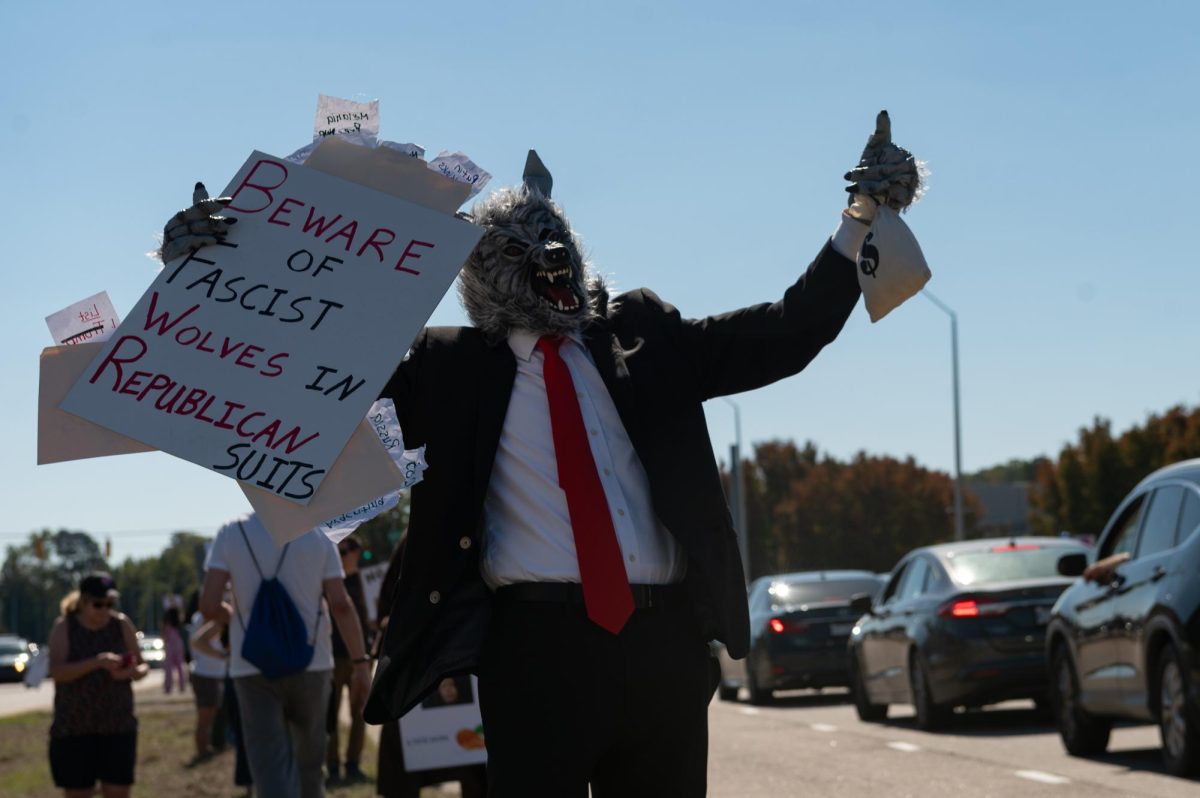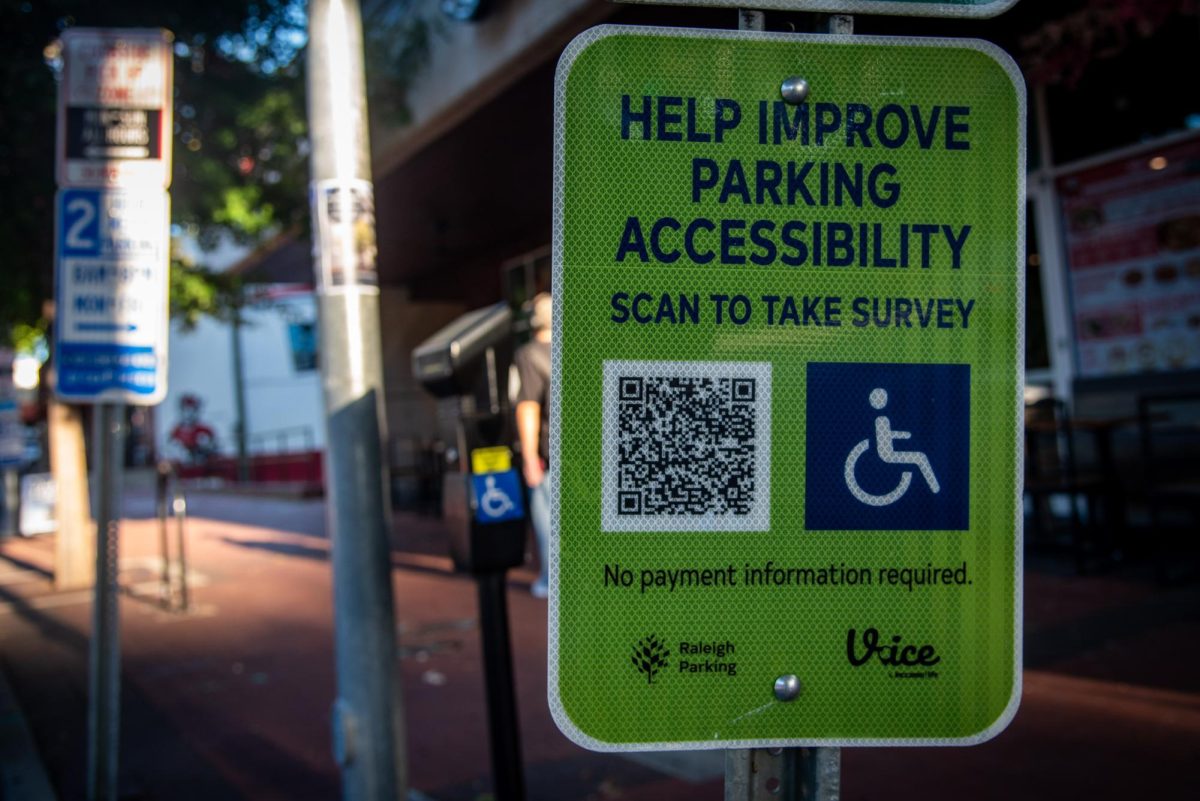N.C. Republicans have followed in the footsteps of Texas and California, as they seek to redraw the state’s congressional maps to net Republicans an additional safe seat in the U.S. House of Representatives.
The new congressional map will change the state’s legislative makeup by removing a swing seat currently held by Rep. Don Davis, a Democrat, by making the first district significantly more Republican. This would change the state’s legislative makeup to include 11 solid Republican seats and three solid Democratic seats.
Steven Greene, professor of political science, said the moves by state Republicans were motivated by the national political environment.
“100% — There’s no doubt,” Greene said. “I mean, this doesn’t happen without it starting with Donald Trump making this push and Texas jumping on, other Republican States and then California responding to try and help protect the Democrats’ chances.”
Greene said a key difference between the redistricting efforts in California and Texas and in North Carolina is that the state is already heavily gerrymandered.
“They left one seat, that could possibly go either way, right? You know, 10 Republicans, three Democrats,” Greene said, “And they’re like ‘not good enough,’ we need to make sure we have 11 seats locked in for Republicans.”
Removing Republican votes from other seats to give to a new solid seat often runs the risk of making the other seats more competitive, but this isn’t likely to be the case in North Carolina, Greene said.
“Flipping N.C. [District] One to being a safe Republican seat, inevitably makes some of those other Republican seats at least a little bit less safe. Now, whether that ends up costing them or not, probably not, they’ve had a lot more data to work on,” Greene said.
Greene said that while N.C. has had several redistricting fights in the courts over recent years, this type of mid-decade redistricting for political purposes is uncommon.
“We’ve had to redistrict due to various court decisions around the nature of our districts. But as far as I know, never just this kind of pure political hardball redistricting in mid-cycle,” Green said. “Texas, which has just done this, did this before in the aughts.”
Greene also highlighted the current Supreme Court case, Louisiana v. Callais, which could weaken the Voting Rights Act by removing the provision requiring majority-minority voting districts and preventing the dilution of minority voters’ power. The move could lead to an additional 19 safe Republican districts in the South.
Beck Whitehead, president of the NC State College Democrats, said he believes the move threatens the democratic process.
“Voters and citizens should be able to choose their own representatives, not the representatives being able to choose their voter base,” Whitehead said. “If you count the total votes for Democrats and the total votes for Republicans in [state] senate races, a majority of them, as in over 50%, were Democratic votes … and it’s 30 to 20 [in favor of] Republicans.”
Whitehead said he would like to see more pushback from Democrats, pointing to Gov. Gavin Newsom’s response to Texas’s redistricting in California. He also pointed to protest as a way to resist.
“We need to focus on elections and really start winning those, but what we can do right now in the present is civil disobedience, is protesting, is rallying, is messaging, it is fundraising, it is donating,” Whitehead said.
“No Kings is very vital,” Whitehead said, pointing to last weekend’s anti-Trump protests.
The NC State College Republicans and the North Carolina Republican Party did not respond to a request for comment.
Greene pointed to the principle of forbearance, arguing that a party having the power to do something doesn’t necessarily mean they should.
“The principle of forbearance, which means just because you can exercise a power when you have a majority doesn’t mean you should, that you recognize that ultimately you are in a political community together, and you don’t push everything to the extreme, that is how democracies thrive,” Greene said. “We are now in a dynamic where you have people pushing everything they can to the extreme for every last bit of partisan advantage. And that is really unhealthy in a democracy.”





